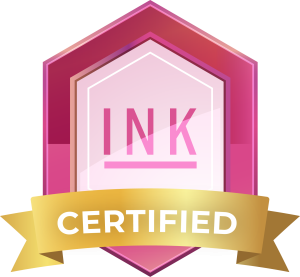
Women buyers are magic to drive sales. Nearly 75% identify themselves as the primary buyer in their household. They hold the purse-strings to between 5 and 15 Trillion dollars in spending every year...and that’s just in the US.
And yet, 91% of them feel marketers and companies, don’t understand their needs. That’s a big gap.
Table of Contents
We, women, are nurturers, caregivers, and influencers.
We’re the steering wheel of our families as we navigate life. We’ve been raised to multi-task and think we have to be “Wonder Woman,” excelling at all things.
It’s tough.
However, it’s also rewarding. We thrive on those feel-good hormones that we get when we make someone happy.
Take Christmas or your favorite gift-giving time.
We don’t want to just give a gift. We want it to be the perfect gift. Something that will make the recipient give us a radiant smile of joy.
We have to really know the recipient. Their likes, tastes, beliefs, hobbies, hopes, and dreams.
Some people, like my elderly Mom, are easy. She always tells me if there is something she needs. She doesn’t shop online much and of course this year she hasn’t been anywhere except to doctor appointments.
My grown son and his wife are another matter. Generally, if they want something… they just buy it.
So like any good marketer, we have to do detective work. Things like interviewing people and watching social media.
In the case of my kids, I use a more direct approach. I use messenger and reach out to their spouse.
Sometimes they have to think about it. Take the message I got back from my son…
“I thought of something. She’s been after me for a couple of years to get her some good kitchen tools. You know, those skinny scraper things that take the heat and you can use in cooking.
“Oh, and she’d like a good pair of tweezers.”
Nothing fancy, but I knew I’d do a “better” job at locating what would be perfect for her.
In the spa/beauty/wellness niche, I’ve spent over 25 years working with and marketing to women. I knew if there was something her husband or one of the kids needed that we offered, she would be the one to bring them in.
Services, marketing, teaching, writing, coaching and mentoring. I still coach and mentor them in business.
Studying the different female buying personalities and psychographics helped me hone in to help them better.
Women tend to buy differently than men do. Most men don’t enjoy the shopping process. They need something and will often take the first acceptable item just to get it done.
For most women, that isn’t enough. As I shared above, they want the ideal gift. They are the same way with personal products, services, or results.
They are willing to take the time and dig to find it...shop.
Women are super-stressed multitaskers. Every step of the way we need to keep it easy.
We need to address buying pain-points. Things that stop the sale.
Then we need to use psychographics and segment marketing by need or concern. And we need to nurture, before, during, and after the sale.
Start with where and how they find you. Look for ways to smooth out their buying journey. Busy and distracted, we need all the TLC we can get.
Focus on her needs, concerns interests, and passions.
Women respond to email marketing at a higher rate than men do. The numbers are highest when they are segmented so she gets relevant information.
Make sure she knows this in the subject line to get her to open the email.
Due to the pandemic and businesses focused online, it’s easy to get an extra 50-100 emails a day. Getting rid of non-relevant emails becomes a priority. Delete is my favorite key 🙂
Try a psychographic approach to social media. Try less sales pitch, more emotion-driven problem-solving.
Amazon and others have gotten very effective of the “if you like this, then you might like this” approach. It works well because it is targeted and it expands the shopper’s options that they haven’t considered.
Women like targeted offers and related choices.
While we like a good sale, what we are really looking for is the ideal item at a great value.
We also love bonuses and rewards.
The nature of nurturing adds value to your brand.
Focus on psychographic interests that give more information or related information. I’ve seen multiple companies in alternative health from supplements to CBD doing this.
One of the popular nurtures is to share recipes that support or incorporate a product offered. Simple things that answer how to use a product, offer better wellness or add nutrition for picky eaters.
With all their stress, women are looking to improve their quality of life. Your solutions and nurturing can offer that. It also bonds them to your brand. Invite them to be part of your tribe and support them in their journey.
When I work with clients I look for ways to enhance their engagement with women. Powerhouse buyers with a broad network of influence. Message me judith@jcpwellnesscopy.com.
For more on psychographics you might enjoy this read.
 Judith Culp Pearson receives three top honors
Judith Culp Pearson receives three top honors
at the annual Society of Permanent Cosmetic Professionals in
Ft. Worth, Texas - October 7-9, 2023




